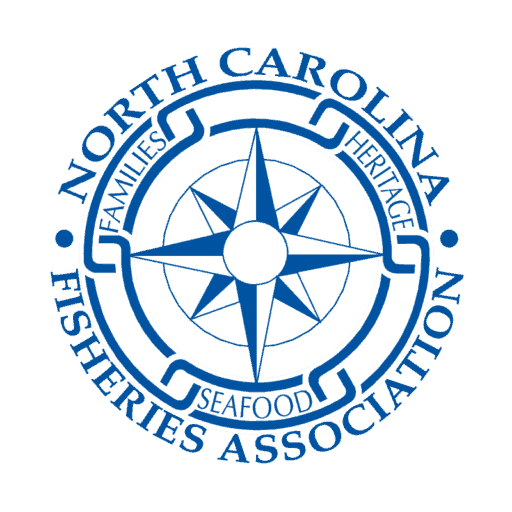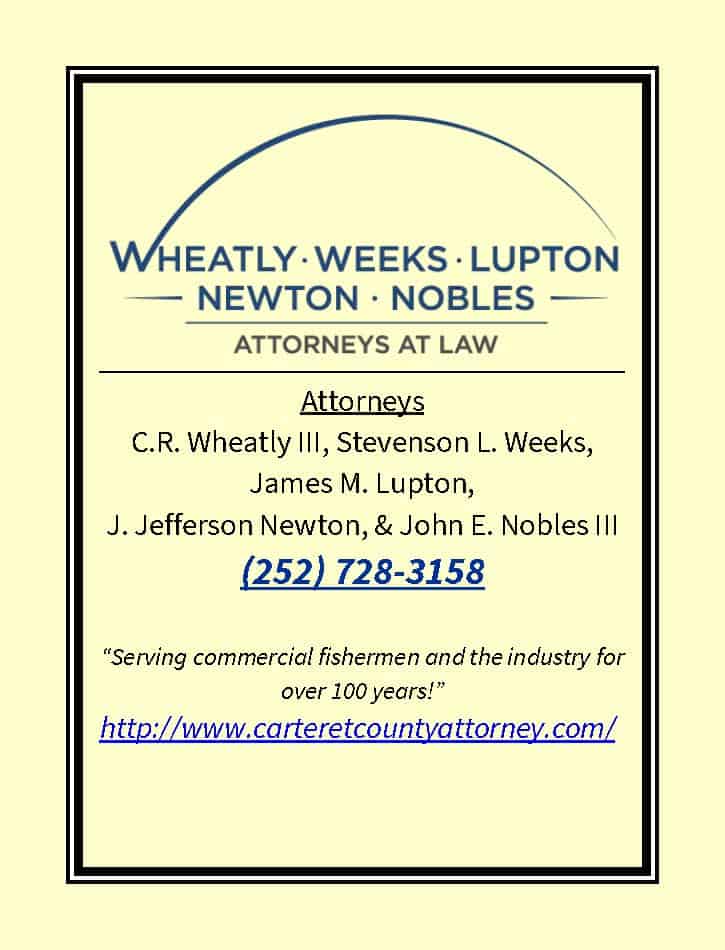Key Takeaways from the Spotted Seatrout
Advisory Committee Meetings
Last week, for the better part of three days, I sat and listened to discussions of the Spotted Seatrout Advisory Committee. For those of you who have never, or haven’t recently, attended a meeting of an FMP Advisory Committee, such as the Spotted Seatrout AC, it’s meant to be an important part of our states fisheries management process. Over several consecutive days, committee members set aside their personal responsibilities and provide DMF staff input on how particular management measures may impact their respective sectors, in hopes that it will help the Division develop sound management recommendations for the Marine Fisheries Commission.
Throughout the AC meeting Division staff compiled a list of key takeaways from the discussion and present it to the Advisory Committee, for final input, before adjourning the AC. Unfortunately, neither I nor the three commercial members on the AC were present for this portion of the meeting, mostly due to frustrations with the tone of the discussion. While the Division probably had a different perspective, the only thing I took away from the meeting was this.
There is a dedicated segment of the recreational sector who thinks they’re superior, morally, economically, constitutionally, and in every other way, to commercial fishermen.
From the start, several recreational committee members made it clear that they had no respect for the commercial fishing industry or it’s contributions to the states food supply and economy. They referred to themselves as “conservationist” and “public fishers” claiming that they, and only they, have the right to fish. They labeled commercial fishing as a limited privilege that can be taken away if, in their view, it impacts their ability to catch a fish.
At every opportunity they minimized the value of the commercial sector often shouting, y’all only catch 10% of the seafood in the US anyway, as if the millions of pounds of food we produce is not necessary.
When confronted with the data showing that recreational removals are the major source of mortality for spotted seatrout, they pointed to their economic value demanding that the state give trout gamefish status, ban gillnets, and manage the fishery based on economic value alone.
There’s no better way to turn a conversation into a confrontation than to tell your fellow committee members they have no value, are unnecessary, and have no “right” to your fish!
It was said so many times, that these fish are a public resource, belonging to public fishers, and that commercial fishermen have no right to them that, by the end of the meeting, I was left wondering if I was even a citizen.
Thank God for the Merrian Webster which defines the public as the people of the state, which is exactly who our Constitution says has the right to fish, all people of the state, not just those with their rod in their hands!
In fact, in regards to our right to hunt and fish the word public is only found twice in the state’s constitution.
Article I section 38 NC Constitution; The right of the people to hunt fish and harvest wildlife is a valued part of the states heritage and shall forever be preserved for the public good. The people have a right, including the right to use traditional methods, to hunt, fish, and harvest wildlife, subject only to laws enacted by the General Assembly and rules adopted pursuant to authority granted by the General Assembly to (i) promote wildlife conservation and management and (ii) preserve the future of hunting and fishing. Public hunting and fishing shall be a preferred means of managing and controlling wildlife.
As you can see, the Constitution never separates the people of the state into a public and private sector as these folks claim. It says the people’s right to fish shall forever be preserved for the public good. The right of the people to commercially fish and harvest fish, for those people of the state who don’t fish, serves the public’s interest and is certainly for the public good.
What kind of person could read these few lines from our Constitution and interpret it in a way that gives them, and only them, the “right” to access these resources?
Or can sit across the table from their own neighbors and tell them they’re less valuable and shouldn’t even be allowed to harvest these fish?
The Constitution clearly states that the “right” to fish is subject to laws enacted by the General Assembly and rules adopted pursuant to authority granted by the General Assembly. The laws of this state allow for the licensing of both recreational and commercial fishers and place a duty on the Marine Fisheries Commission “to provide fair regulation of commercial and recreational fishing groups in the interest of the public”. It’s clear that the General Assembly, through state law, gave both recreational and commercial fishers the “right” to fish and recognized that both serve the interest of the broader public and therefore are for the public good.
These laws uphold both the Constitution and the public trust doctrine by ensuring all people, those who fish and those who don’t, can access our coastal fishery resources.
Nowhere in either our States Constitution or laws does it suggest that one group’s economic value should supersede another group’s right to access these resources or that only one group of citizens has a “right” to those resources.
In fact, it says just the opposite!
In closing I’ll leave you with this final thought. Every time I heard one of these folks belittle the commercial sector and boast about their own value, I was reminded of something my grandmother used to say when confronted with this type of person.
If you could buy them for what they’re worth, and sell em for what they think they’re worth, you’d be rich!
Glenn Skinner
NCFA -Executive Director
ASMFC Meeting This Week
The Atlantic States Marine Fisheries Commission (ASMFC) meets this week in Arlington, Virginia at the Westin Crystal City at 1800 Richmond Highway. The meeting starts at 1:30 on Monday April 29th and goes through noon on Thursday May 2nd.
Meeting Page With Briefing Materials
If you have any questions or concerns reach out.
Thomas Newman
Fisheries Liaison

